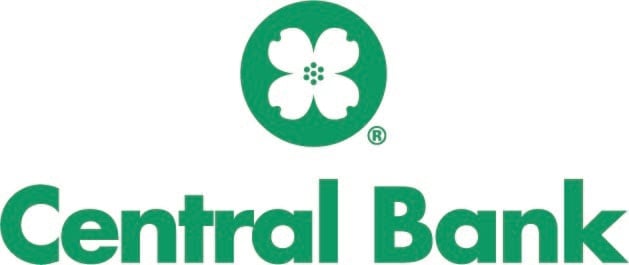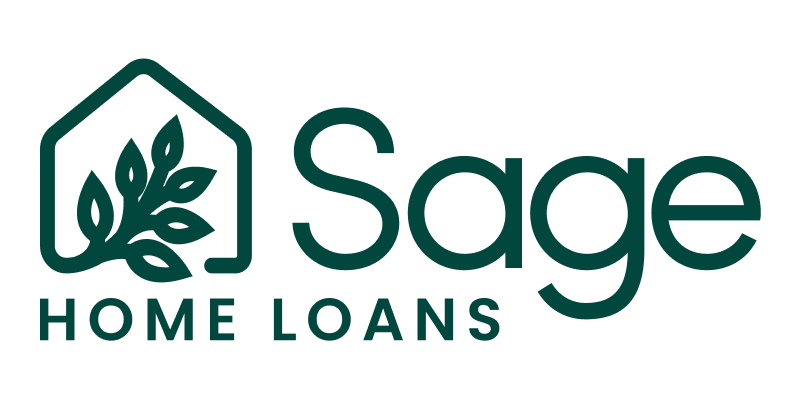Compare Today’s FHA Refinance Rates | Saturday, February 7, 2026
Rates are current as of February 7, 2026 11:38 AM EST
APR 6.43%
0.00% 1wAPR 7.06%
0.00% 1wAPR 7.30%
0.00% 1wShow details
The Nerdy headline
Simplist is an online marketplace of mortgage lenders; human guidance is optional. You’ll make payments to a loan servicer, not to Simplist. Loans are not available in every state.
Home loans overall
NerdWallet rating
4.5
- Loan origination process can be completed online.
- Offers government-backed FHA and VA loans.
- Offers module that compares mortgage rates among other lenders.
- Offers loans in many states and Washington, D.C., but not nationwide.
- Does not offer home equity loans or lines of credit.

NMLS#1880338
APR
5.75%
APR
5.75%
Interest rate
5.25%
Est. mo. payment
$2,112/mo
Total fees
$6,125
Next Door Lending is a wholly-owned subsidiary of NerdWallet
Show details
The Nerdy headline
Next Door Lending, a mortgage broker, offers expert assistance shopping for and closing a loan, as well as specialty loans at competitive rates. Mortgages are not available in every state.
- Offers a variety of loan types, including first-time buyer programs and loans for self-employed borrowers.
- Real-time rate quotes available while working with a broker.
- Responsive customer service.
- Competitive pricing often available, especially for non-traditional borrowers.
- Does not publish interest rates online.
- No mortgage mobile app.
- Loans are not available in every state.
Show details
The Nerdy headline
Simplist is an online marketplace of mortgage lenders; human guidance is optional. You’ll make payments to a loan servicer, not to Simplist. Loans are not available in every state.
Home loans overall
NerdWallet rating
4.5
- Loan origination process can be completed online.
- Offers government-backed FHA and VA loans.
- Offers module that compares mortgage rates among other lenders.
- Offers loans in many states and Washington, D.C., but not nationwide.
- Does not offer home equity loans or lines of credit.
Show details
The Nerdy headline
Midwest-rooted Central Bank offers an online application, which you can track via mobile app. But you’ll have to contact the bank for mortgage rates.
Home loans overall
NerdWallet rating
4.0
- Among the best when it comes to online convenience.
- Offers a full selection of mortgage types and products, including jumbo, home equity, and government loans.
- Claims to offer preapproval within 24 hours of loan application.
- You'll have to complete a loan application to see mortgage interest rates.
- Bank branch locations limited to the Midwest.
- Does not offer home equity lines of credit.
Show details
The Nerdy headline
Better provides a seamless and easy-to-navigate application process and generally offers lower mortgage rates than average. VA loans are available in some states.
- Offers a program allowing qualifying buyers to make cash offers.
- Makes it easy to see customized mortgage rates.
- Average interest rates are on the low end compared to other lenders, according to the latest federal data.
- Doesn’t offer USDA loans.
- VA loans are not available in every state.
- Doesn't offer home equity loans.

NMLS#1880338
APR
6.00%
APR
6.00%
Interest rate
6.00%
Est. mo. payment
$2,099/mo
Total fees
$0
Next Door Lending is a wholly-owned subsidiary of NerdWallet
Show details
The Nerdy headline
Next Door Lending, a mortgage broker, offers expert assistance shopping for and closing a loan, as well as specialty loans at competitive rates. Mortgages are not available in every state.
- Offers a variety of loan types, including first-time buyer programs and loans for self-employed borrowers.
- Real-time rate quotes available while working with a broker.
- Responsive customer service.
- Competitive pricing often available, especially for non-traditional borrowers.
- Does not publish interest rates online.
- No mortgage mobile app.
- Loans are not available in every state.
Show details
The Nerdy headline
Sage Home Loans stands out for speed and convenience, though it lacks a mobile app and doesn’t serve New York borrowers.
Home loans overall
NerdWallet rating
4.5
- Sample rates are easy to browse online.
- Quick, convenient pre-qualification process.
- Average time to close is just under 20 days, faster than industry standard.
- Home loans aren’t available in New York.
- No mobile app or online chat, despite focus on mortgage tech.
- Online pre-qualification requires sharing contact info.
Show details
The Nerdy headline
Midwest-rooted Central Bank offers an online application, which you can track via mobile app. But you’ll have to contact the bank for mortgage rates.
Home loans overall
NerdWallet rating
4.0
- Among the best when it comes to online convenience.
- Offers a full selection of mortgage types and products, including jumbo, home equity, and government loans.
- Claims to offer preapproval within 24 hours of loan application.
- You'll have to complete a loan application to see mortgage interest rates.
- Bank branch locations limited to the Midwest.
- Does not offer home equity lines of credit.
See more options
About these rates: The lenders whose rates appear on this table are NerdWallet's advertising partners. NerdWallet strives to keep its information accurate and up to date. This information may be different than what you see when you visit a lender's site. The terms advertised here are not offers and do not bind any lender. The rates shown here are retrieved via the Mortech rate engine and are subject to change. These rates do not include taxes, fees, and insurance. Your actual rate and loan terms will be determined by the partner's assessment of your creditworthiness and other factors. Any potential savings figures are estimates based on the information provided by you and our advertising partners.
Explore historical refinance rate trends
See how rates have changed over time to understand past patterns and economic fluctuations

Historical timeline
Loan purpose
Loan type
National average 6.43%
Today's average refinance mortgage rates
| Product | Interest rate | APR |
|---|---|---|
| 30-year Fixed | 5.50% | 6.43% |
| 30-year Fixed FHA | 5.88% | 6.69% |
| 30-year Fixed VA | 5.13% | 6.61% |
| 20-year Fixed | 7.75% | 7.83% |
| 15-year Fixed | 5.13% | 7.06% |
| 10-year Fixed | 6.69% | 7.07% |
| 3-year ARM | 4.13% | 4.87% |
| 5-year ARM | 5.13% | 7.30% |
| 7-year ARM | 7.32% | 7.21% |
| 10-year ARM | 5.50% | 6.43% |
Accurate as of 02/07/2026.
Data source: ©Zillow, Inc. 2025. Use is subject to the Terms of Use
FHA Refinance Rates, Loan Types and Requirements



Kate Wood
Abby Badach Doyle
Chris Jennings
How to find today's FHA refinance rates
Your options: Common types of FHA refinance loans
- Rate-and-term refinance: With a rate-and-term refinance, you can refinance a non-FHA loan into a new FHA loan.
- Simple refinance: A simple refinance loan lets you refinance an existing FHA loan into a new FHA loan.
- Streamline refinance: An FHA-to-FHA refinance, but with fewer requirements. There are two types: credit-qualifying and non-credit qualifying. A credit-qualifying streamline refinance allows you to skip the FHA appraisal. A non-credit-qualifying streamline refinance has even fewer hoops to jump through, because the lender doesn't perform a credit check.
Nerdy Tip
- Cash-out refinance: With an FHA cash-out refinance, you take out a new, larger loan than what you previously owed on the mortgage. The difference between what you owed and the new mortgage amount goes to you in cash.
- 203(k) refinance: Similar to an FHA 203(k) loan, a 203(k) refinance allows you to roll the cost of repairs or upgrades to your home into your refi. The FHA has rules about what kinds of renovations can be financed with 203(k) funds and whether an FHA consultant has to sign off on the work. If that sounds like too much red tape for you, you may want to look into other options for paying for home renovations.
How to decide: Should I refinance my FHA loan?
- Canceling FHA mortgage insurance: For most FHA loans, if you put down 10% or more and have made on-time payments, your FHA mortgage insurance premiums (MIP) will disappear automatically after 11 years. Otherwise, you’ll pay them for the life of the loan, or you can refinance to a conventional loan after reaching 20% equity.
- Getting a lower interest rate: This reduces your monthly payment.
- Paying off your mortgage faster: A shorter term might make your monthly payments go up, but you’ll pay less in interest over the life of the loan.
- Tapping into your home equity: A cash-out refinance lets you access some of your home value as cash. Financing home improvements is a common use of the funds.
- Adding or removing a borrower: For example, after a divorce, you’d need to refinance your mortgage to remove your ex-spouse from the loan.
Nerdy Tip
What are FHA refinance closing costs?
Can you refinance to get rid of FHA mortgage insurance?
- A credit score of at least 620 — though a higher score could get you a lower interest rate
- A debt-to-income ratio no greater than 45%
- At least 20% equity in your home if you want to avoid having to pay private mortgage insurance
Learn more about FHA loans:
More mortgage tools and resources
Latest mortgage news and analysis
View rates by loan type or state
Get even more specific with rates personalized to your situation




